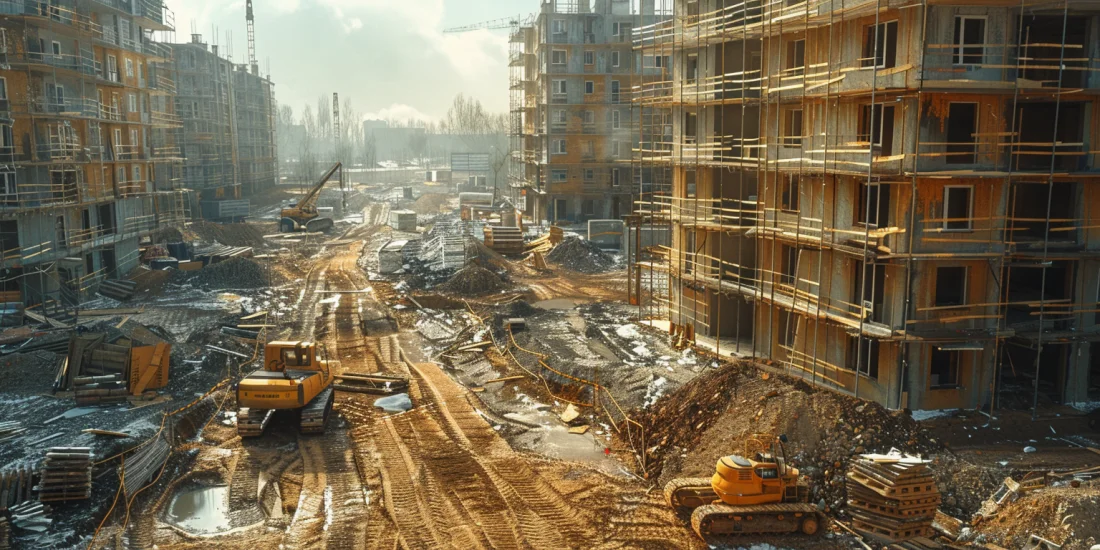Modular construction, a method of building that involves creating sections or modules in a controlled factory environment, has gained significant traction in the construction industry. These modules, often complete with interior finishes, are transported to the construction site and assembled into a final structure. This approach offers numerous advantages, including faster project timelines, improved quality control, and enhanced sustainability. As a result, modular construction is becoming an increasingly popular choice for a variety of projects, from residential homes to large-scale commercial buildings.
The appeal of modular construction lies in its efficiency and flexibility. By manufacturing modules off-site, construction can proceed simultaneously with site preparation, significantly reducing overall project duration. This parallel processing not only speeds up the building process but also minimizes disruptions at the construction site. Additionally, the factory-controlled environment ensures consistent quality and adherence to stringent standards, reducing the risk of defects and rework.
Benefits of Modular Construction
Modular construction offers numerous benefits that make it an attractive alternative to traditional building methods. One of the primary advantages is the reduction in construction time. By producing modules in a factory while site work progresses, projects can be completed up to 50% faster than conventional construction. This acceleration translates to cost savings and quicker occupancy.
Quality control is another significant benefit. Modules are built in a controlled environment, protected from weather conditions that can compromise quality. This setting allows for rigorous inspections and adherence to precise specifications, resulting in higher quality construction. Additionally, the factory setting facilitates the use of advanced technologies and automated processes, further enhancing quality and consistency.
Sustainability is also a key advantage of modular construction. The factory-based production process generates less waste, as materials are used more efficiently and off-cuts can be recycled. Furthermore, modular construction reduces site disturbance, minimizing the environmental impact of construction activities. This approach supports sustainable building practices and contributes to the overall goal of creating greener structures.
Enhancing Flexibility and Scalability
Modular construction offers unparalleled flexibility and scalability. Modules can be customized to meet specific design requirements, allowing for a high degree of personalization. This flexibility makes modular construction suitable for a wide range of applications, from single-family homes to complex commercial developments.
Scalability is another critical advantage. Modular construction can easily accommodate changes in project scope. Additional modules can be manufactured and added as needed, allowing for seamless expansion. This adaptability is particularly beneficial for projects that require phased construction or future expansion capabilities.
The ability to disassemble and relocate modules also adds to the flexibility of modular construction. Buildings can be modified, expanded, or even relocated with minimal disruption, providing long-term value and adaptability to changing needs.
Cost Efficiency and Budget Management
Modular construction is cost-efficient, offering significant savings compared to traditional building methods. The reduction in construction time leads to lower labor costs and shorter project timelines, translating to cost savings. Additionally, the controlled factory environment allows for bulk purchasing of materials, further reducing costs.
Budget management is more predictable with modular construction. The factory production process minimizes the risk of unexpected expenses due to weather delays or site conditions. This predictability helps in maintaining budgets and avoiding cost overruns, making modular construction an attractive option for developers and contractors.
The efficiency of modular construction also reduces financing costs. Faster project completion means quicker returns on investment, as buildings can be occupied and operational sooner. This financial advantage is a significant consideration for investors and stakeholders in the construction industry.
Improving Safety and Reducing Risks
Safety is a critical concern in construction, and modular construction offers substantial improvements in this area. The factory environment provides better control over safety conditions, reducing the risk of accidents and injuries. Workers operate in a safer, climate-controlled setting, away from the hazards of an active construction site.
By shifting much of the construction work off-site, modular construction reduces the time workers spend in potentially dangerous site conditions. This approach minimizes exposure to weather-related risks and reduces the likelihood of accidents. Additionally, the repetitive nature of factory work allows for better training and adherence to safety protocols, further enhancing worker safety.
The use of prefabricated modules also reduces the risk of errors and rework, contributing to overall project safety. Precise manufacturing and quality control ensure that modules fit together correctly, minimizing the need for on-site adjustments and the associated risks.
Future Trends in Modular Construction
The future of modular construction looks promising, with several emerging trends set to enhance its impact on the industry. Technological advancements such as Building Information Modeling (BIM), automation, and robotics are poised to revolutionize the modular construction process. BIM allows for detailed planning and coordination, ensuring accurate design and efficient assembly of modules.
Automation and robotics in the factory setting can increase production efficiency and precision, reducing reliance on manual labor and enhancing overall quality. These technologies enable the production of more complex and customized modules, expanding the possibilities of modular construction.
Sustainability will continue to be a driving force in modular construction. Innovations in materials and construction techniques will further reduce waste and improve energy efficiency. The integration of renewable energy systems into modular designs will contribute to the development of greener buildings.
Key Takeaways
– Modular construction reduces project timelines by allowing simultaneous off-site manufacturing and on-site preparation.
– Quality control improves due to the controlled factory environment, resulting in higher quality construction.
– The method enhances sustainability by minimizing waste and site disturbance, supporting green building practices.
– Flexibility and scalability allow for customization, expansion, and relocation of modular buildings.
– Cost efficiency results from reduced construction time, lower labor costs, and predictable budget management.
– Safety improves with the factory-controlled environment, reducing on-site risks and enhancing worker safety.
– Future trends include the integration of BIM, automation, and robotics, along with a continued focus on sustainability.



